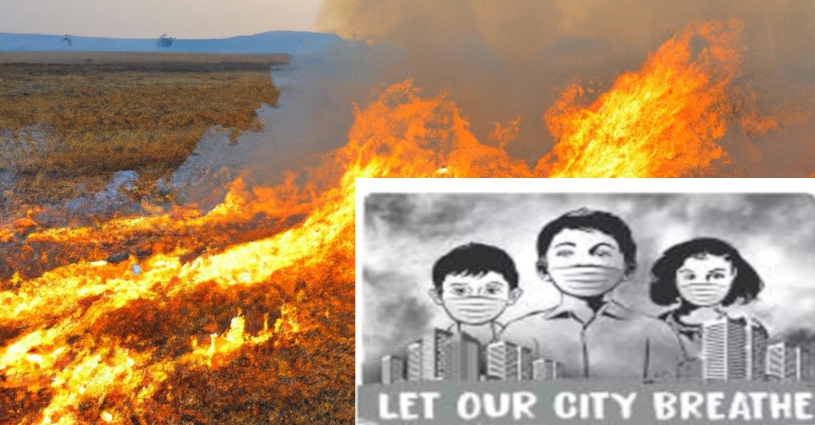As autumn descends upon Punjab, the state is grappling with a concerning issue that has been plaguing it for years - stubble burning. The annual practice of burning crop residue, known as "parali," is once again making headlines, and not for the right reasons.
The repercussions are already visible in the form of deteriorating air quality, Ludhiana finds itself grappling with a sharp rise in air pollution.
The Air Quality Index (AQI) in the city has surged to a staggering 328, raising alarm bells about the deteriorating air quality and its potential health implications. Let's delve deeper into this issue.
Parali burning on the rise:
Over the past few years, Punjab has witnessed a significant increase in the burning of parali, or crop residue. This agricultural practice, while economical for farmers, has severe environmental consequences. The smoke generated from parali burning contains harmful pollutants that contribute to soaring AQI levels.
Ludhiana's alarming AQI:
Ludhiana, one of Punjab's major industrial and commercial hubs, is feeling the brunt of this escalating crisis. The city's AQI has reached an alarming 328, indicating "very poor" air quality. Such high levels of pollution pose substantial risks to public health, especially for individuals with respiratory issues and vulnerable populations.
AQI trends across Punjab:
It's not just Ludhiana; the entire state of Punjab is witnessing a surge in AQI levels. Jalandhar, for instance, is currently reporting an average AQI of 135, which is a cause for concern. Experts attribute this to the increase in parali burning incidents.
Concerns for Haryana and Delhi:
While Ludhiana has taken the initial hit, the repercussions are expected to spread to neighboring areas, including Haryana and Delhi, in the coming days. The deteriorating air quality in Punjab has often had a cascading effect on air quality in the National Capital Region (NCR), exacerbating the pollution crisis.
Expert concerns:
Environmental experts have expressed grave concerns over the situation. The 43% increase in parali burning incidents compared to last year and a whopping 67% increase compared to 2021 are alarming statistics. These rising figures indicate a worsening environmental crisis that demands immediate attention and action.
Conclusion:
As Ludhiana's AQI breaches 300, it is evident that urgent steps are needed to curb parali burning and mitigate the health risks associated with deteriorating air quality.
The government, farmers, and communities must come together to find sustainable alternatives to this harmful practice and safeguard the well-being of all residents.
